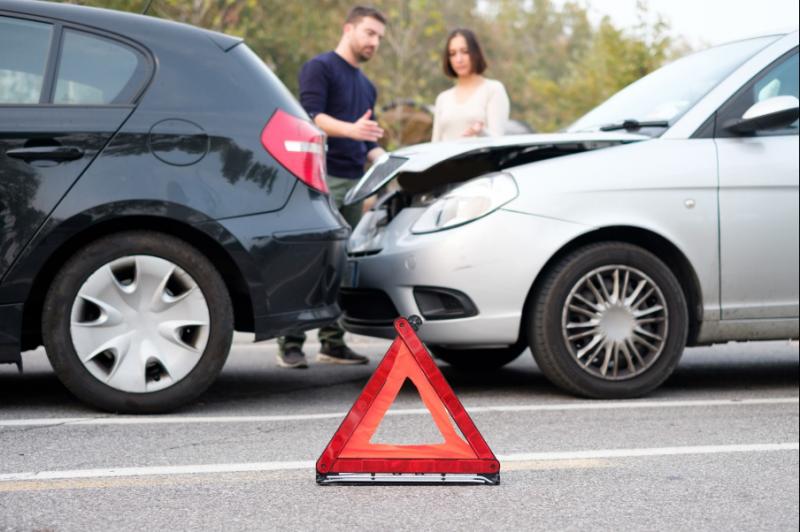A Guide to Determining Car Accident Fault

Do you feel safe when you're out driving on the open road? Ideally, you would, but it's important to keep a sense of caution active as well.
Accidents on the roadways are too common. They are so common, in fact, that there is a high likelihood that each and every one of us will be in an accident at some point during our lifetimes.
If you've found yourself in an accident, it's important to ensure you get the compensation that you have a legal right to. To do this, you'll need to understand how to determine and prove car accident fault.
What is car accident fault and why is it so important to establish your case? Read on and we'll walk you through what you need to know.
What Is Car Accident Fault?
When an accident occurs on the roadway, it's likely because one or more drivers were behaving in a way that could be considered negligent.
A driver may have been speeding, texting while driving, failing to use head or tail lights, or any number of negligent mistakes. Often, these kinds of mistakes or behaviors can lead to a serious accident.
A serious accident can result in a number of damages. Damage could be done to the vehicles involved, and public property close to the accident. Drivers, passengers, and pedestrians all might be injured, and require expensive medical care to get back to their previous state of health.
Car accident injuries, after all, can be quite extensive.
Someone needs to be liable for these damages, and determining a car accident fault is the process of determining who is going to have to pay for these various damages.
If a driver can be proven to be at fault, they and their insurance company will be on the line for the compensation needed to make all involved whole again.
In some states, known as no-fault states, drivers will always turn to their own insurance companies to manage damages after an accident. In these states, determining fault will be less important than in states where this isn't the law.
Determining Car Accident Fault
The insurance adjuster is usually the person who attempts to establish fault following an accident.
However, it's important to understand that the more evidence you can provide, the better chance you'll have of ensuring their overall judgment is true to what actually happened.
After an Accident
Even though it can be shocking, it's important to know what to do after an accident. Collecting evidence that can be used to establish fault can be all-important.
After you've ensured that you and your passengers are safe, try and get as many photos and videos of the scene of the accident as possible. These can be highly important in helping to determine fault.
Skid marks, the position of the vehicles, and the environment around the accident can all help to paint a picture of the accident for the insurance company.
Getting detailed photos of evidence done to the vehicle can also help the experts at the insurance company trace the situation backward, and determine who was really at fault.
Just as important can be getting the testimony and contact information of any eyewitnesses to the accident. The opinion of an impartial third party will be key in helping to create a solid foundation when it comes to your evidence.
Following an accident, you'll also want to visit a doctor or medical professional as soon as possible. You'll want copies of the doctor's report, so there's evidence of any injuries that you sustained as a result of the accident.
Overcoming Potential Challenges & Obstacles
What if the insurance company doesn't seem to think the evidence is present to properly determine fault? What if it seems like they might come to the wrong conclusion?
If there's even a chance of this occurring, you may want to consider the aid of a personal injury lawyer. This trained professional will have years of experience in negotiating with insurance companies.
They will know exactly what evidence you'll need to present a bulletproof case, and the best and most efficient way to present it.
Insurance companies often will work hard to try and combat claims, low ball offers, and work out other ways to pay out less and keep more cash in their pockets. This is how they stay in business.
Having an auto accident attorney on your side can help combat these tactics and ensure that you can prove fault in your case quite clearly.
In addition, an experienced attorney can help you determine how much compensation you are really owed, and will help you to obtain that amount. It's easy to lowball yourself if you're not sure how much your case is really worth.
They can also guide you through the often complicated and time-consuming legal process, ensuring your case runs quickly and you get compensation sooner rather than later.
What To Do After a Car Accident
A car accident can be shocking, scary, and downright disruptive to your day-to-day life. If you've been injured in an auto accident, you have a right to compensation under the law.
Determining car accident fault will be a big part of this process. The above can help you to understand how this process works and why it is so important to your overall case.
Need more information or advice pertaining to auto accidents? Keep scrolling our blog for more helpful information.
More to Read:
Previous Posts:










